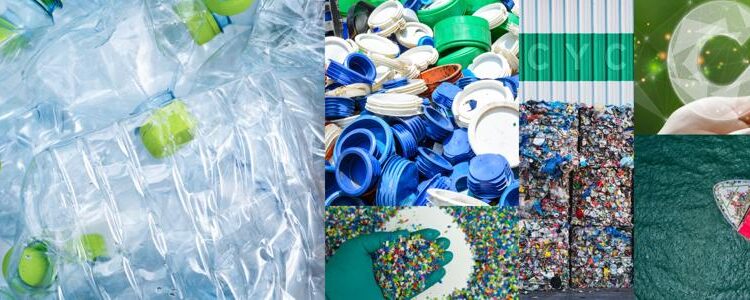Plastic Scrap and Recycled Plastics Trading

Plastic scrap trading involves the purchasing, selling, and trading of various types of recyclable plastic materials. Various types of plastics, identified by resin codes such as PET, HDPE, PVC, etc., are traded in the plastic scrap market. Each type of plastic possesses unique recycling characteristics and potential applications.
This process contains a complex supply chain, consisting of collectors, processors, manufacturers, and traders. Collectors gather plastic waste from various sources, which is then processed, sorted, and prepared for resale. The recycling process involves cleaning, shredding, and sometimes further refining the plastic scrap to eliminate contaminants and prepare it for reprocessing into new plastic products. At this stage, market dynamics play a crucial role, as the prices of plastic scrap materials fluctuate based on factors such as demand, resin type, quality, and global economic conditions.
On a global scale, plastic scrap is traded internationally, creating a global market where materials are bought and sold across borders to meet recycling demand and supply. Plastic trading has significant environmental impact, as it diverts plastic waste from landfills and incineration, contributing to resource conservation and pollution reduction. Technological advancements, such as advanced sorting technologies and efficient processing methods, have enhanced the quality and viability of plastic scrap trading.
Legislation and regulations are the most important part of plastic scrap trading, ensuring the proper handling, processing, and disposal of plastic waste. Such regulations vary by region and country. In terms of the circular economy, plastic scrap trading is a pivotal component, as it enables the recycling and reintroduction of plastic waste into the production cycle, reducing the need for virgin plastic production. However, the challenges faced in plastic scrap trading include contamination, mixed plastic types, and insufficient recycling infrastructure. Traders acknowledge these challenges and focus on problem-solving as a core aspect of the business. Additionally, encouraging sustainable practices by promoting recycling awareness and incentivizing individuals and businesses to participate in plastic recycling is crucial.
Numerous industries are leveraging collective plastic scrap trading to manufacture a wide range of products, including packaging materials, textiles, and construction materials. Plastic scrap trading aids in reducing plastic pollution, conserving resources, and fostering a more sustainable approach to plastic use and disposal.
To make a difference as a trading company on a global scale, Klever Polymers actively contributes to the international trade of plastic scraps, recycled plastics and raw materials. Our steps include:
- Sustainable Sourcing: Prioritizing sourcing plastic scrap from environmentally responsible suppliers who collect and process plastic waste in an eco-friendly manner.
- Quality Control: Implementing strict quality control measures to ensure the quality of the plastic scrap, resulting in higher-value materials and increased customer trust.
- Market Knowledge: Staying informed about market trends, regulations, and demand for recycled plastics to make informed decisions and remain competitive.
- Environmental Compliance: Complying with local and international environmental regulations and promoting responsible plastic waste management practices.
- Supply Chain Efficiency: Optimizing logistics and supply chain operations to minimize transportation costs and reduce the carbon footprint.
- Customer Education: Educating customers about the environmental benefits of using recycled plastics and assisting them in making informed choices.
- Innovation: Exploring new technologies and innovative methods for processing and trading plastic scrap more efficiently and sustainably.
- Partnerships: Collaborating with organizations, NGOs, private companies and regulation makers to support initiatives that promote plastic waste reduction and recycling.
- Transparency: Maintaining transparency in our operations, including sharing information on sourcing, processing, and environmental practices, to build trust with customers and partners.
By focusing on sustainability, quality, and responsible practices, Klever Polymers can differentiate itself in the plastic scrap trading industry and contribute to a more eco-friendly and circular economy.
